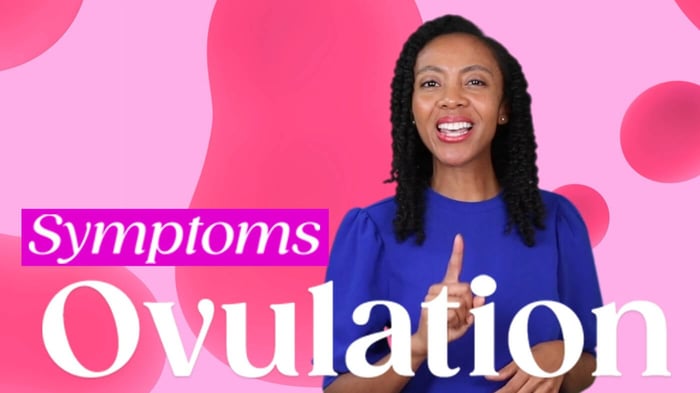Polycystic Ovary Syndrome (PCOS) is a complex condition that affects millions of women worldwide. It is marked by hormone imbalance, irregular periods, and sometimes multiple ovarian cysts on ultrasound. While the name highlights the ovaries, the syndrome impacts far more than reproductive organs — it can affect metabolism, mood, and even long-term health. Understanding Polycystic Ovary Syndrome is crucial for women who want to manage symptoms, address fertility concerns, and protect overall well-being.
1. What Is Polycystic Ovary Syndrome?
Polycystic Ovary Syndrome is classified as an endocrine disorder. The ovaries produce excess androgens, or “male hormones,” which disrupt the normal cycle of egg development and release. In many cases, the eggs remain trapped in small follicles, contributing to the appearance of ovarian cysts. The syndrome can range from mild to severe, and not every woman has the same symptoms, which makes it a highly individual condition.
2. Common Symptoms to Watch For
Women with Polycystic Ovary Syndrome may experience a wide spectrum of signs:
Irregular periods or fewer than nine menstrual cycles per year.
Difficulty conceiving due to lack of ovulation.
Excess facial or body hair caused by elevated androgens.
Acne and oily skin.
Thinning hair on the scalp.
Unexplained weight gain and challenges with weight management.
Symptoms often emerge during adolescence, but many women only recognize the pattern later in adulthood.
3. What Causes Polycystic Ovary Syndrome?
The exact cause remains unknown, but several risk factors contribute:
Genetics: Having a mother or sister with Polycystic Ovary Syndrome increases risk.
Insulin resistance: This condition raises insulin levels, which stimulate the ovaries to produce more androgens.
Hormone imbalance: Excess luteinizing hormone or disrupted estrogen-progesterone balance interferes with ovulation.
Inflammation: Studies show low-grade inflammation may be higher in women with the syndrome.
These factors often combine, creating a cycle that perpetuates symptoms and fertility challenges.
4. How PCOS Impacts Fertility
Polycystic Ovary Syndrome is one of the leading causes of infertility due to irregular ovulation. Some women may ovulate only a few times a year, reducing chances of conception. Thankfully, many treatments can help:
Lifestyle changes like weight reduction can restore ovulation.
Medical treatments such as clomiphene citrate or letrozole stimulate egg release.
In vitro fertilization (IVF) may be an option if other strategies are unsuccessful.
Importantly, having Polycystic Ovary Syndrome does not mean pregnancy is impossible — it just requires targeted management.
5. How Doctors Diagnose Polycystic Ovary Syndrome
Diagnosis usually involves a combination of:
Irregular periods or absent cycles.
Signs of high androgens (acne, hair growth, or lab results).
Multiple small follicles visible on an ultrasound.
At least two of these must be present for a diagnosis. Doctors will also rule out other conditions that mimic PCOS, such as thyroid disease or elevated prolactin.
6. Lifestyle Changes for Better Management
Lifestyle is a cornerstone of PCOS care. Effective steps include:
Balanced diet: Focus on whole grains, vegetables, lean proteins, and limited refined sugars to address insulin resistance.
Regular exercise: Both cardio and strength training improve metabolism and hormonal balance.
Stress management: Sleep, mindfulness, and yoga reduce cortisol, which can influence cycles.
Even modest weight management — losing just 5–10% of body weight — can restore ovulation in some women.
7. Medical Treatments for PCOS
Doctors often combine medical treatments with lifestyle adjustments:
Hormonal contraceptives: Regulate cycles and lower androgen levels.
Metformin: Improves insulin sensitivity, regulating cycles and aiding weight loss.
Fertility medications: Induce ovulation for women trying to conceive.
Anti-androgens: Help control acne and hair growth.
Treatment goals vary — some women prioritize symptom relief, others focus on fertility or reducing long-term health risks.
8. Long-Term Health Risks of PCOS
Because Polycystic Ovary Syndrome affects metabolism, it raises risks for several conditions:
Type 2 diabetes and prediabetes.
High blood pressure and cardiovascular disease.
Endometrial cancer due to irregular cycles.
Sleep apnea.
Anxiety and depression.
Early diagnosis and management reduce these risks significantly, highlighting the importance of routine care.
9. Emotional Impact and Mental Health
Polycystic Ovary Syndrome isn’t just physical. Symptoms like acne, unwanted hair growth, and weight struggles can lower confidence. Combined with the stress of fertility challenges, it can lead to anxiety and depression. Mental health support, counseling, or peer support groups help women navigate the emotional burden and feel less isolated.
10. Living with PCOS Day to Day
Managing PCOS requires consistency. Practical daily tips include:
Preparing balanced meals in advance.
Scheduling regular workouts to stay on track.
Tracking periods, symptoms, and moods with apps.
Communicating openly with healthcare providers about changing symptoms.
With the right plan, women with Polycystic Ovary Syndrome can regain control of their health and lead fulfilling lives.
11. Frequently Asked Questions
Can PCOS be cured?
There’s no cure, but symptoms can be effectively managed with lifestyle and medical treatments.
Does every woman with PCOS have ovarian cysts?
No. The name is misleading — some women have none, while others show multiple follicles on ultrasound.
Can I get pregnant if I have PCOS?
Yes. While it may take longer and require treatment, many women with Polycystic Ovary Syndrome conceive naturally or with assistance.
Does PCOS always cause weight gain?
Not always. While insulin resistance makes weight management harder, slim women can also have PCOS.
When should I see a doctor?
If you have irregular periods, difficulty conceiving, or symptoms like excess hair growth, consult a professional.
Conclusion
Polycystic Ovary Syndrome is a complex but manageable condition. By addressing both the hormonal and metabolic aspects, women can reduce symptoms, restore cycles, and protect long-term health. Through lifestyle changes, personalized medical treatments, and emotional support, living with PCOS becomes less about struggle and more about balance. Knowledge, consistency, and care are the keys to managing Polycystic Ovary Syndrome effectively.
Related blog articles:
- Ovulation explained
- Naturally Boost Your Fertility
- Fertility and age: The truth about getting pregnant after 35
- Male Factor Infertility
- When is your fertile window?
- How long does it actually take to get pregnant?
- Understanding Your Menstrual Cycle: A Comprehensive Guide
- Ovulation Symptoms: Key Signs & Tracking Tips
- Pregmate App – Ovulation Tracker, Fertility and Period Calculator
- Conception explained: Fertilization and Implantation
- Using ovulation tests to identify the most fertile days of the month
- Your IVF Journey: Navigating the Path of In Vitro Fertilization
- A Comprehensive Guide to Pregnancy Tests: Everything You Need to Know
- Understanding IUI Intrauterine Insemination: A Complete Guide
- Pregmate pregnancy test strips: How and when to do the test
- Tracking LH surge using ovulation tests
- What is PCOS?
- What causes PCOS? Symptoms and signs.
- Using ovulation tests with PCOS
- 5 Menopause Myths BUSTED by a Medical Expert
- Your Complete Guide to Egg and Sperm Freezing
- The Hidden Truth About Endometriosis Every Woman Needs to Know
- How to Use Ovulation Tests to Get Pregnant Faster



